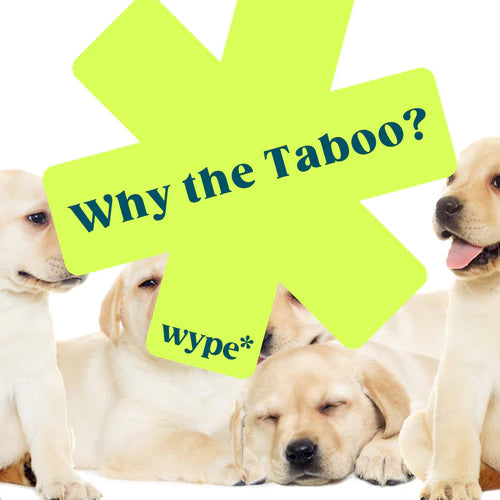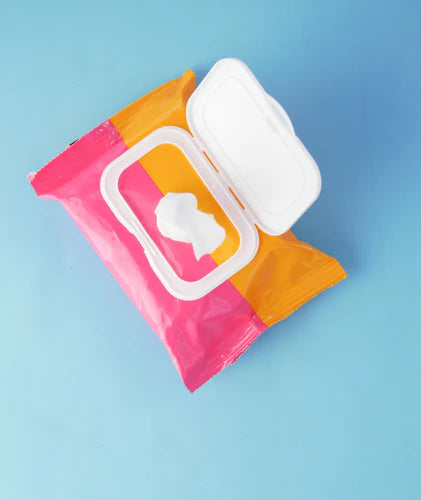Toilet taboos, and why we should flush them away

Toilet taboos, and why we should flush them away
Benjamin Franklin famously said, “in this world nothing can be said to be certain, except death and taxes”. Well, we have something to add to that, and you can probably guess what it is.
Our bodies are incredible machines, able to turn food into energy and nutrients, and at some point they need to do away with the waste that comes from that process. Everywhere in the world, the time comes when we must stop what we're doing and go take part in a ritual as old as time. We were pooping before we could write, and yet this fundamental need has been largely written off the agenda.
Defecation, as one might scientifically refer to it, has been the object of avoidance for centuries. So much so, that when searching for lists of the most important inventions of all time, flushable toilets and modern waste treatment systems rarely make the cut. Curiously, unsafe sanitation still causes over half a million deaths each year. Perhaps we should show our loos (and sewers) a bit more love, but there’s nothing that we love to push out of the spotlight more than what we push out... well, you know.

Everyone does it, yet it's still entangled in a sense of embarrassment for so many. 28% of people say they won't go in public because of lack of privacy, and 16% are embarrassed. On the flip side, though, 26% of people said nothing can stop their go: they never hold it. Which one are you, you gotta go when you gotta go, or you drive home in between errands to do your business in peace?
Avoiding the conversation around the brown bullets not only makes us uncomfortable with our natural bodily functions, but it also turns the bathroom lights off on us when we might be questioning what ‘normal’ means for us.
The taboos around poop

Taboos are acts or topics that are considered rude or prohibited due to cultural sensibility that sees them as excessively repulsive, sacred, or allowed only by certain people. They can differ between cultures and smaller groups of people which makes them pretty subjective to who and where you are.
Taboos can often make their way into our personal lives too, not just in public or social settings. With this, it generally becomes more difficult to confront certain topics with ourselves in private, which can negatively impact our health and wellbeing. For example, up to 75% of individuals with IBS may be undiagnosed!

The censorship around the topic has been historically supported by popular brands as well, in the attempt to not 'rock the boat' on a conversation that the public didn't feel comfortable having. It seems odd that we should expect ourselves to be able to talk about using the toilet openly when even the companies whose business lies in the toilet can’t talk about it.
Andrex’s disastrous “Scrunch or Fold” Campaign
Toilet paper brands (the leading bathroom hygiene choice in many countries) have often turned to mascots to make their products more palatable. In the words of Matt Stone, Marketing Director for UK and Ireland for Andrex, “When done right, it becomes such a clear memory structure to enable fast brand recognition and that’s how brands grow.”. But, when you take away all the clouds and cute animals, the intended use still stands. When we see a toilet paper ad, we know what we’d be using it for, but what happens when a company hints less subtly to its product’s intended use?
Back in 2013, Andrex released a TV ad depicting (possibly) one of the strongest divides in the nation. The scrunch or fold debate. This was met with a nationwide outrage as people were faced with the reality of the company’s product, instead of the pedigree pup they were so used to.
The advert presented different people in different scenarios, noting their preference. Vice magazine called it The Worst Advertising Campaign Ever, saying: “Imagine her beckoning you into the bathroom: Oops, I left the door open and now my fake nail has burst through the seductively folded Andrex, I'm getting all dirty…” We don’t want to assume, but the imagination has to stretch quite far to start sexualising wiping your arse. All this uproar, from an advert considering whether the nation scrunches or folds their toilet paper.

The surprising result of this campaign was that, as a nation, we would rather allow a fluffy four-legged pal to dictate how we think about our bodily functions than be faced with the reality of wiping our bums.
Why is pooping embarrassing?
In many cultures, what comes out of our rear-end is highly associated with disease and infection – and don’t get us wrong there’s no smoke without fire - Psychologist Paul Rozin, of the University of Pennsylvania, argues that our disgust response reduces the likelihood of ingesting disease-causing microorganisms. Furthermore, he says; "Disgust evolves culturally, and develops from a system to protect the body from harm to a system to protect the soul from harm." and, "Disgust functions like a defense mechanism, to keep human animalness out of awareness" . So ironically, the animals are there to help us forget that we are animals too?
Yes, it's smelly (66% are worried about this), it is often accompanied by a soundtrack (57% worry about this one) and maybe we shouldn’t be comfortable enough to do it at the dinner table, but when it comes health conditions associated with our colon and bowel, we need to be comfortable with talking about what goes down in the bathroom.
It is not so long ago that Dame Deborah James campaigned asking a nation to check their poo. Whether we like it or not, toilet time is a way for our bodies to tell us about our health, and for some with chronic health conditions, it can be a painful and isolating part of life. Hiding away our primal needs in the bathroom is like denying that we need to breathe, eat, and sleep.
Challenging the stigma
There are many ways to lift the curtain on difficult or stressful topics; some more mature ways, like education. Knowing more about a topic can help reduce the irrational sense of 'fear' associated with it. And then, another scientifically proven method is, laughter! Being witty and telling enhancing jokes increases people’s social support, which helps people feel better in difficult times. In addition, the use of positive forms of humor can help people to think about stressful situations in new ways.
Who would have known that our silly tone of voice here at Wype might be so very intentional? We don't always get it right, but our mission has always been to use humour to make it easier to admit that in fact, we all poop, whilst still highlighting the importance of intimate health and wellness along with everything else that goes on below the waistline (without the tail wags and woofs).
Keeping clean down there
We've gone over poop and its connection to the fragility of the human condition (or something like that), so now for the last act: What goes in, must come out, and in most cases, shall be cleaned up.
Before toilet paper we used all kinds of things to wipe. A caveman might have used a leaf, the ancient Romans used a sponge on a stick. Heck, people in the 1800s used to have communal toilets (and communal poo sponge sticks), meaning that you could be sitting next to your bestie while catching up on the latest - did you catch the football game yesterday? How about the last episode of Love Island?
When toilet paper was introduced, it also took some getting used to, and today we can hardly imagine a life without it (eww). What we're saying is that there's nothing wrong with a little innovation!
Some people think that just because you want to use something to keep you cleaner after you use the bog, you must have been dirtier in the first place. Like “oh you need something EXTRA to clean up? You must be super dirty.” In tandem with poo taboos, the action of cleaning reminds us that in fact, there is something to be cleaned, which then brings us back around to the cycle of shame and disgust.
Ultimately, taboos can be unhealthy. We shouldn't isolate those who for a reason or another, might need the bathroom more than average, or might be in pain because of something going on down there, and it is in our interest to be able to understand when our bodies are giving us a sign that something’s not quite right, by speaking to a friend, a relative, or a medical professional. We can’t do this if we’re too scared to even utter the word “poop”.

We’re not going to sit here and pretend that we have the power to wipe the stigma of popping a squat off the face of the planet...yet. But we can do our bit to normalise feeling comfortable talking about it and understanding that all our bodies work differently.
Want to try us on for size? Wype’s cleansing gel will make dry tissue seem like a sponge on a stick when you simply apply it to your toilet paper and wipe yourself clean! Find our Starter Kit here!



